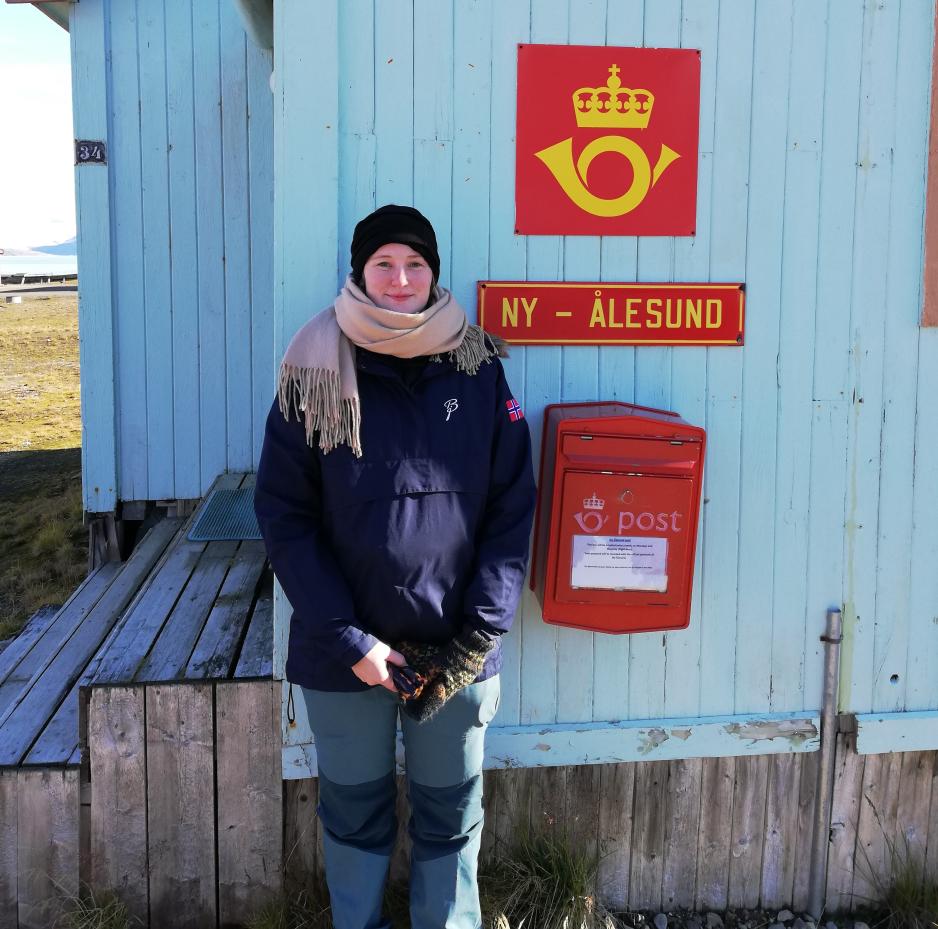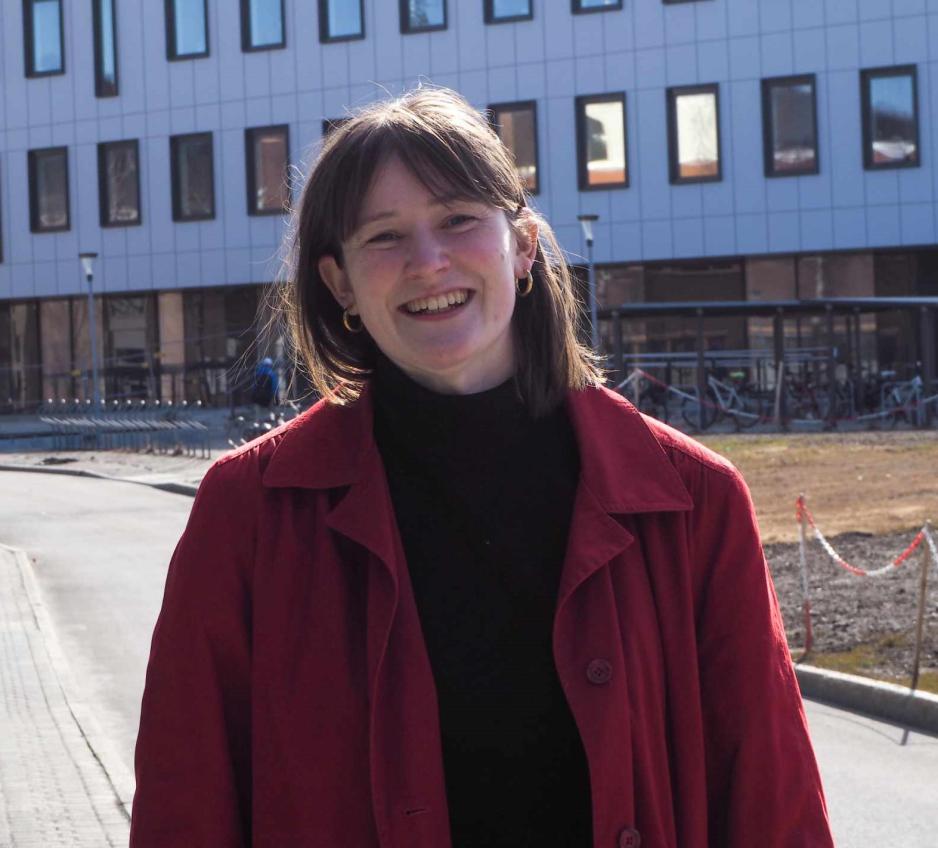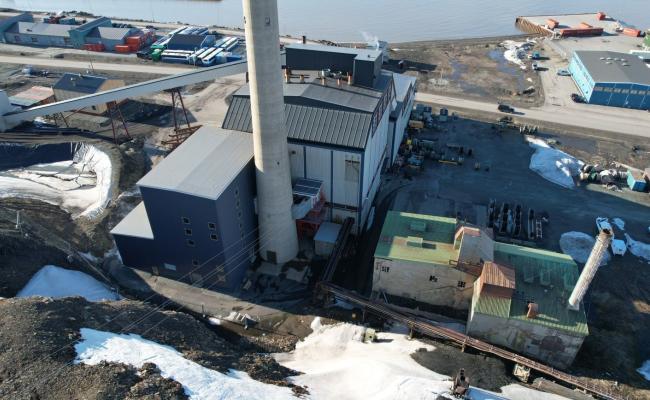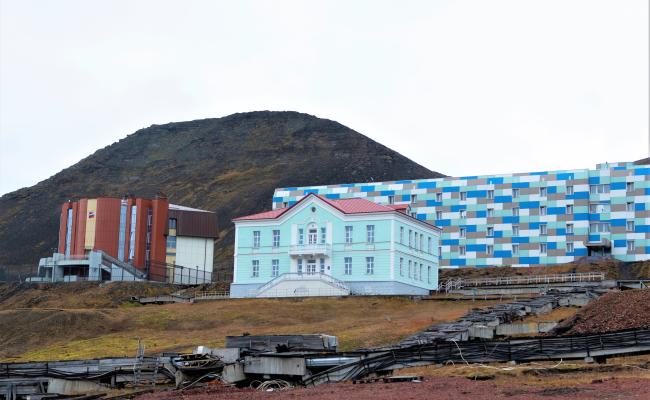Svalbard Researcher: “Longyearbyen Is Meant to Be the Prime Example of Renewable Solutions in the Arctic”

Research fellow at Nord University, Tiril Vold Hansen, during her fieldwork on Svalbard in 2022. Her research has now been published in the Polar Record journal and focuses on the fight for symbolic capital in the energy transition on Svalbard. (Photo: Private)
Great uncertainty surrounds the energy supply on Svalbard and the scheduled transition to renewable energy for the Arctic archipelago. Researcher Tiril Vold believes the process has been affected by a contest over symbolic capital and prestige.
In 2021, the Longyearbyen Community Council decided to shut down the local coal power plant which was supplying the archipelago with energy. The reason was environmental protection and the high costs associated with the plant, which was becoming old and worn down.
The aim is for Svalbard, with its 3000 inhabitants, to be self-sufficient with renewable energy within 2030. In the meantime, diesel fuel is replacing the traditional coal power.
Tiril Vold Hansen, a research fellow at Nord University, has investigated the political interests that prevail in Norwegian Svalbard policy, including the political process surrounding the phasing out of coal on the Arctic archipelago.
In an article published in the Polar Record journal earlier this year, Hansen writes that introducing renewable energy is considered a prestige project since a transition on Svalbard could benefit the entire Arctic.
"Longyearbyen is supposed to be a kind of prime example. We want to showcase that we can succeed with renewable energy in the Arctic," says Hansen in an interview with High North News.
The Longyearbyen Community Council, the Norwegian government, and the energy company Store Norske have all wanted to be perceived as the rightful energy transition leader to stay relevant in the archipelago. Thus, the process has been affected by the three actors fighting over who will get credit for the project.
Enforcement of sovereignty after the coal industry
Hansen writes that one of the reasons it took so long before the coal industry shut down on Svalbard is that it has played an important role in Norwegian enforcement of sovereignty and presence on the archipelago.
Can the new energy solutions play as big a part in enforcing sovereignty as the coal industry?
"Many are unsure about that and highlight that Svalbard has nothing equivalent to the Norwegian, stable, year-round jobs of the coal industry. The government has expressed that the focus on the coal industry will shift to research and tourism as the new industries in Svalbard. However, the challenge is that these are international industries, and they will not sustain Norwegian communities on the archipelago in the same way as the coal industry," says Hansen and adds:
"Norwegian sovereignty does not depend on having Norwegians on Svalbard; it is an objective set by the Norwegian government, and they believe that a Norwegian presence is important in enforcing sovereignty."
In her article, Hansen writes that the "Norwegian government has had to balance the interests and presence of other states in their Svalbard policies." While the coal industry has been an essential tool in upholding Norwegian presence in Svalbard, it is now also important to the government to lead the energy transition on the archipelago to signal Norwegian sovereignty.
"We will see if the government introduces any sovereignty measures in the Svalbard white paper. They have already limited the right to vote for foreign inhabitants on Svalbard, and I think we might see more of that in tourism, as well."
"New environmental regulations were recently introduced, which the tourism industry feels very limited by. The same ideas might be playing a part in that, too. In addition to the environmental challenges, they might have seen that the tourism industry does not contribute to upholding the Norwegian communities," says Hansen and continues:
"In addition to the environmental arguments, this is likely about geopolitics as well. Several researchers have pointed out that the authorities can clarify who is in charge through environmental regulations."

Research fellow at Nord University, Tiril Vold Hansen, during her fieldwork in Svalbard in 2022. (Photo: Private)
New Svalbard white paper
Many are waiting on the new Svalbard white paper, which is expected before the summer. Hansen says many are interested in whether responsibility for the energy supply will be moved from the community council to the state.
The community council sees that the energy transition will be costly and a major task. The council is struggling to distribute diesel fuel costs in the community, and there has been talk of an 80% energy price increase for ordinary people.
The community council has proposed that the four major businesses, all state-owned, take a larger share of the increased diesel prices.
"The diesel solution has also been shown to be not very safe in terms of energy security. The Armed Forces were recently there and helped install power generators, for example. This is urgent, and Svalbard needs a solution now. This also applies to the enforcement of sovereignty. If there is to be Norwegian communities and industries there, the energy must be in place."
"Store Norske's role as a company will likely also be part of the white paper, and they will still play an important part in Svalbard and the Norwegian Svalbard policy. Store Norske has been concerned with readjusting, so we might get a clearer message regarding them."
All Svalbard white papers look quite similar.
The researcher also expects housing to be a subject in the Svalbard white paper and points out that housing is yet another power factor that can be used to control Svalbard.
"If you have a state job, you get housing at a subsidized price, a salary supplement, and perhaps a car. If you do not work in the state, it is much harder to get housing as the housing market in Svalbard is very limited."
"Many state jobs, such as Norsk helsenett, have been moved to Svalbard in the past years, and the Ministry of Trade, Industry and Fisheries and the Consumer Authority also have people there."
However, the researcher is unsure whether the Svalbard white paper will give the local community the answers it needs.
"All the Svalbard white papers look quite similar. The overarching lines have stayed the same, and since we have not had any leaks yet, there might not be anything exciting to find in the new white paper. Perhaps the clearest messages will be seen in the state budget."




